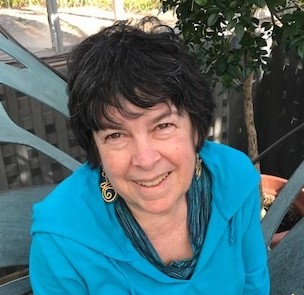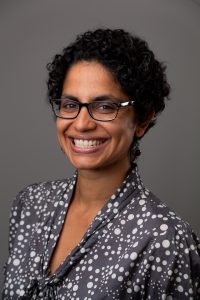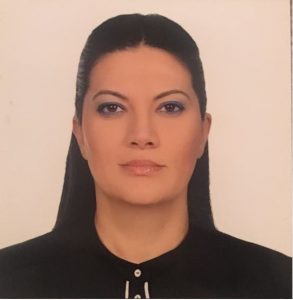BIOS
 Judy Ancel continues to do labor education since she retired in 2017 as Director of UMKC’s Worker Education & Labor Studies program after 29 years. She believes everyone needs a labor education to be able to defend their rights and democratize the workplace. Judy has taught college students, union members and the public on labor relations, labor history and contemporary problems of working people in a global economy. Early in her career, she worked in factories, and was a union activist and organizer in both the United Steelworkers and American Federation of Teachers. She holds a Masters in history from Hunter College of the City University of New York and a B.A. from Stanford University.
Judy Ancel continues to do labor education since she retired in 2017 as Director of UMKC’s Worker Education & Labor Studies program after 29 years. She believes everyone needs a labor education to be able to defend their rights and democratize the workplace. Judy has taught college students, union members and the public on labor relations, labor history and contemporary problems of working people in a global economy. Early in her career, she worked in factories, and was a union activist and organizer in both the United Steelworkers and American Federation of Teachers. She holds a Masters in history from Hunter College of the City University of New York and a B.A. from Stanford University.
In 2019 she won the Lifetime Achievement Award from the United Association for Labor Education, and in 2009 she won their award for Outstanding Contribution to the Field of Labor Education. Both awards are given once a year to one labor educator among UALE’s North American membership. The 2009 award was for her role as originator and executive producer of The Heartland Labor Forum, a weekly one-hour radio show about the workplace and economic issues on community radio in Kansas City KKFI-90.1FM since 2989. In 2011 she won first prize from The International Labor Communications Association for a radio show, The Last Overhaul about the shutdown of the American Airlines maintenance base in Kansas City, and in 2016 won again for a show on changing labor relations at Harley Davidson Co. Ancel is a founder and is Organizing Co-Chair of Kansas City Jobs with Justice. She is President of the Board of Directors of The Cross Border Network for Justice and Solidarity, a non-profit organization that develops ties and mutual understanding between working people in the Kansas City area and workers in Mexico and Central America. Its motto is: Supporting workers across borders and workers who cross borders.

Susanne Bali, has a background in municipal schools and preschools. Her professional title before the union track was a nanny. She worked in schools, recreation centers and preschool with a special commitment around children with special needs.
A commitment to precarious employment and equality and gender equality led to her taking on the role of shop steward in 2006 for Kommunal (Swedish municipal workers union), where she was later employed as a local level trade union officer in 2011.
Since 2016 she is a trade union officer at Swedish Hotel and restaurant workers unions federal office. Her main tasks consist of negotiations of central collective agreements and central dispute negotiations. The role of trade union officer entails an interesting variety and breadth of tasks and responsibilities. Everything from trade union training development, policy development, to working with development and relationships with local trade union officers and shop stewards close to the elected officials.
 Dr. Elisa Fruhauf-Garcia is professor of Latin American Colonial History at the Federal Fluminense University (UFF), Rio de Janeiro, Brazil, since 2009, having completed post-doctoral research at the University of Campinas (2007-2009) and the Spanish National Research Council (CSIC/Madrid) (2015-2016).
Dr. Elisa Fruhauf-Garcia is professor of Latin American Colonial History at the Federal Fluminense University (UFF), Rio de Janeiro, Brazil, since 2009, having completed post-doctoral research at the University of Campinas (2007-2009) and the Spanish National Research Council (CSIC/Madrid) (2015-2016).
Her first book, based on her dissertation, “As diversas formas de ser índio” was published in 2009. She has also authored many articles in books and reviews about the ethno-history of the Native Peoples in the River Plate basin and their relationship with Iberian colonial powers. Her research was supported by many institutions, including the Coordination for the Improvement of Higher Education Personnel (Capes); the National Counsel of Technological and Scientific Development (CNPq); and the Carlos Chagas Filho Foundation for Research Support of the State of Rio de Janeiro (Faperj) – Brazil; Fundación Carolina – Spain; and the Max Planck Institute for European Legal History – Germany. She is currently researching the history of Tupi-Guarani women during the conquest of the River Plate basin in the middle of the sixteenth century, focusing on Asunción and São Paulo as hubs for the establishment of the Iberian colonial powers in that region. By connecting ethno-history, gender studies, and legal history, her research aims to understand the conquest from the perspective of Indian women.
 Dr. Sirisha Naidu is a feminist radical political economist and a professor at University of Missouri-Kansas City. Her research intersects issues of women and work, land, and the natural environment. She was in the leadership of the faculty union at Wright State University in Dayton Ohio that went on a three-week strike in the winter of 2019.
Dr. Sirisha Naidu is a feminist radical political economist and a professor at University of Missouri-Kansas City. Her research intersects issues of women and work, land, and the natural environment. She was in the leadership of the faculty union at Wright State University in Dayton Ohio that went on a three-week strike in the winter of 2019.
 Fulya Pinar Ozcan, is a graduate from Eastern Mediterranean University in July 1999 with a degree of Bachelor of Arts in International Relations. She completed her Masters of Business Administration at Webster University in Orlando, Florida on August 2004.
Fulya Pinar Ozcan, is a graduate from Eastern Mediterranean University in July 1999 with a degree of Bachelor of Arts in International Relations. She completed her Masters of Business Administration at Webster University in Orlando, Florida on August 2004.
After receiving her education, Fulya Pınar Özcan worked in America Online Call Center in Orlando as Assistant Trainer. She later returned to Turkey and started to work in Textile Trade Union Öz İplik-İş since 2006 as project manager and International Relations Secretary.
In her current position she is developing and implementing projects/programs, she is maintaining networks between International organizations and the union, conducting local and International field research related to industry and Industrial Relations, advising the President, representing Union on International and national meetings and has expertise specifically on Gender Policies, migration, refugees, training, child labour, multinational companies, code of conducts, global economy, organizing, collective bargaining, employment, unemployment, social dialogue, Textile Industry.
She creates and maintains networks among the social partners, organize national networking, publicity and awareness raising events, produce and/or supervise the production of advocacy materials.
She is also representing Hak-İş confederation and Öz İplik-İş Textile Union in International and national committees, councils and platforms and transfers information, policy development recommendations on behalf of Union, develops an overall strategy and implementation plan for the projects, provides ongoing leadership and guidance to all initiatives in the project, prepares policy papers, develops strategies and recommendations on industrial relations.
Fulya Pinar Özcan became a European Trade Union Confederation(ETUC) Women committee member representing Hak-İş Confederation in 2009 and she was elected as presidium member in 2011. Recently She was elected as vice president of ETUC women committee which represent 22 million women workers throughout Europe.
She represented European Trade Union Confederation in the European Women’s Lobby (EWL) board and general assembly which represent 50 million women in 30 European country and 3000 women associations from 2012 to 2018.
She is member of European Trade Union Confederation (ETUC)Migration Committee, Member of European Trade Union Confederation International Matters, affairs and Trade Committee, Member of International Trade Union Confederation Women’s Committee, Member of International Trade Union Confederation Asia Pacific Region (ITUC-AP)Women’s Committee, Member of ETUC Executive Committee, Member of Industrial European Trade Union Federation Executive Committee, Member of Vocational Qualifications Authority Textile Committee, Founding member of International Migration and Refugee Association.
Resources
- Women Leaders around the World in the fight against COVID 19: https://www.forbes.com/sites/avivahwittenbergcox/2020/04/13/what-do-countries-with-the-best-coronavirus-reponses-have-in-common-women-leaders/
- This Virus Knows Know Borders Power Point Slides: This Virus Knows No Borders
- Covid-19 in Turkey: Turkey Presentation
